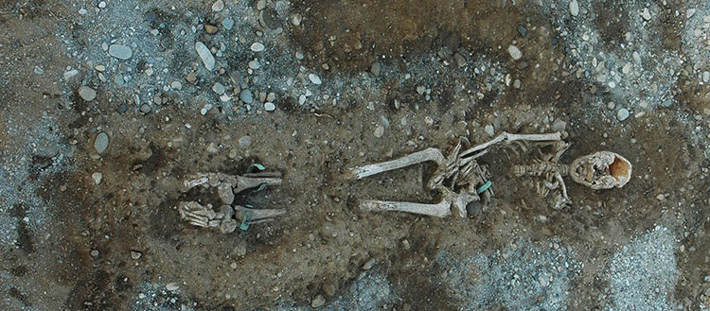
(© Archeodunum SA)
GENEVA, SWITZERLAND—According to a statement released by the University of Geneva, a team of scientists led by Alessandra Varalli of Spain’s Pompeu Fabra University has analyzed the biochemical composition of plant remains and the collagen in human and animal bones discovered at Bronze Age sites in western Switzerland and southeastern France. The study suggests that between 2200 and 800 B.C., the people of the region ate mostly plants and land animals, despite the presence of nearby lakes and rivers. The amount of nitrogen in the plant remains indicates that the use of manure as a crop fertilizer became widespread.
Read the rest of this article...
No comments:
Post a Comment
Note: Only a member of this blog may post a comment.